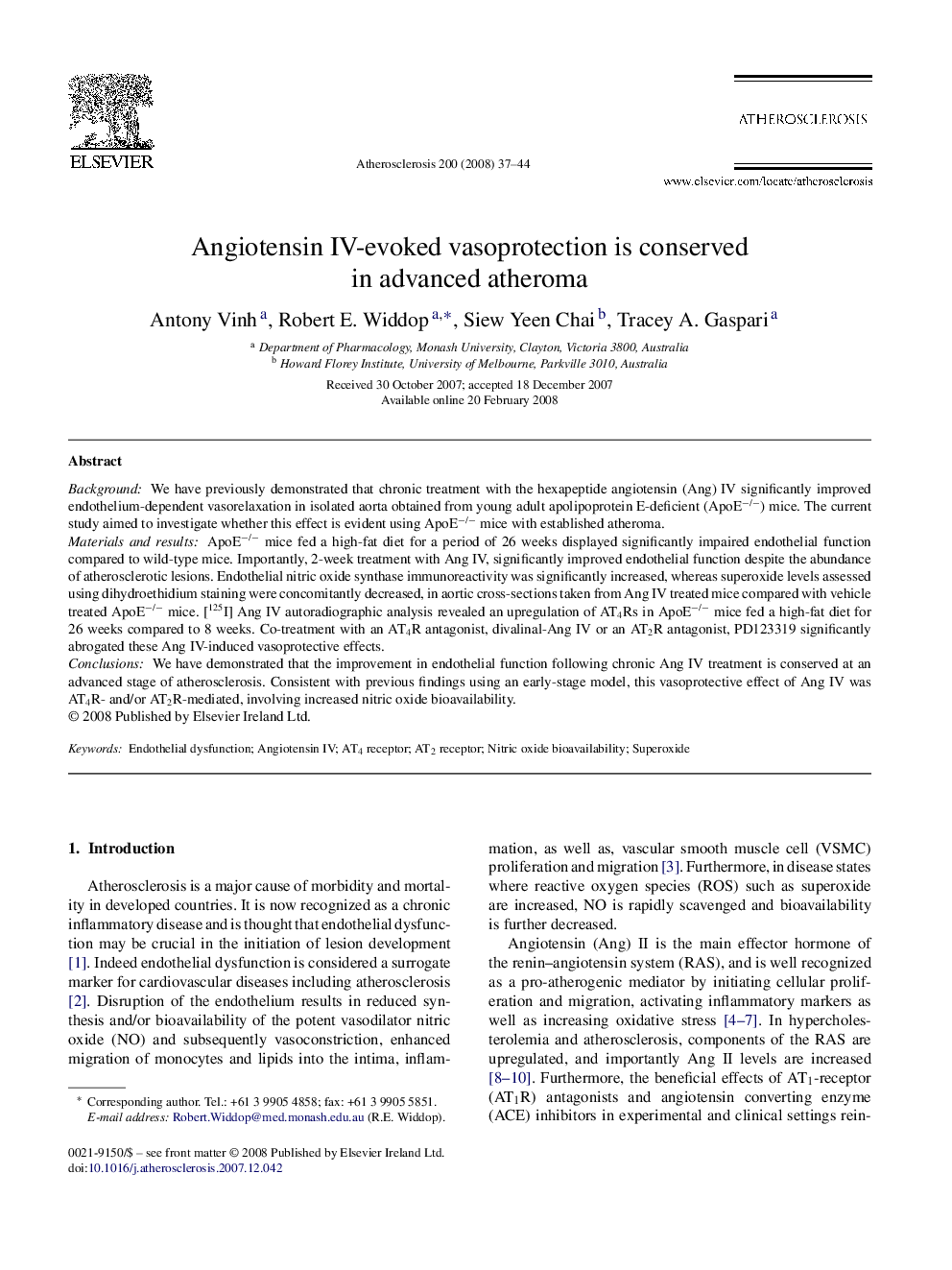| Article ID | Journal | Published Year | Pages | File Type |
|---|---|---|---|---|
| 2893948 | Atherosclerosis | 2008 | 8 Pages |
BackgroundWe have previously demonstrated that chronic treatment with the hexapeptide angiotensin (Ang) IV significantly improved endothelium-dependent vasorelaxation in isolated aorta obtained from young adult apolipoprotein E-deficient (ApoE−/−) mice. The current study aimed to investigate whether this effect is evident using ApoE−/− mice with established atheroma.Materials and resultsApoE−/− mice fed a high-fat diet for a period of 26 weeks displayed significantly impaired endothelial function compared to wild-type mice. Importantly, 2-week treatment with Ang IV, significantly improved endothelial function despite the abundance of atherosclerotic lesions. Endothelial nitric oxide synthase immunoreactivity was significantly increased, whereas superoxide levels assessed using dihydroethidium staining were concomitantly decreased, in aortic cross-sections taken from Ang IV treated mice compared with vehicle treated ApoE−/− mice. [125I] Ang IV autoradiographic analysis revealed an upregulation of AT4Rs in ApoE−/− mice fed a high-fat diet for 26 weeks compared to 8 weeks. Co-treatment with an AT4R antagonist, divalinal-Ang IV or an AT2R antagonist, PD123319 significantly abrogated these Ang IV-induced vasoprotective effects.ConclusionsWe have demonstrated that the improvement in endothelial function following chronic Ang IV treatment is conserved at an advanced stage of atherosclerosis. Consistent with previous findings using an early-stage model, this vasoprotective effect of Ang IV was AT4R- and/or AT2R-mediated, involving increased nitric oxide bioavailability.
